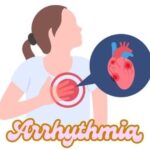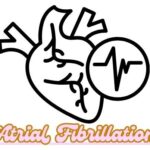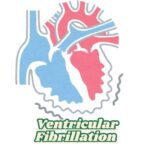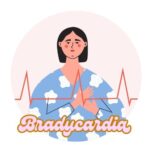What are Premature Beats?
Premature beats, also known as premature contractions, are early heartbeats that disrupt the normal rhythm of the heart. They can occur in the atria (premature atrial contractions, or PACs) or in the ventricles (premature ventricular contractions, or PVCs). While they are common and often benign, they can occasionally indicate underlying heart issues, particularly if they are frequent or symptomatic.
Types of Premature Beats
- Premature Atrial Contractions (PACs):
- Definition: PACs occur when an extra electrical impulse triggers the atria to contract before the regular heartbeat.
- Characteristics: They often produce a feeling of a skipped heartbeat or an extra beat. PACs can be more pronounced during times of stress or excitement.
- Premature Ventricular Contractions (PVCs):
- Definition: PVCs are early heartbeats originating from the ventricles. They occur when an electrical impulse is generated in the ventricles before the next scheduled heartbeat.
- Characteristics: PVCs can feel like a fluttering or skipped beat and may lead to a brief pause before the next heartbeat. They can occur in isolation or in patterns, such as bigeminy (every other beat is a PVC) or trigeminy (every third beat is a PVC).
Causes of Premature Beats
Premature beats can arise from various factors, including:
- Lifestyle Factors:
- Caffeine: Excessive consumption of caffeine from coffee, tea, energy drinks, or soft drinks can lead to PACs or PVCs.
- Alcohol: Drinking alcohol, particularly in large amounts, can trigger premature beats.
- Tobacco Use: Smoking and nicotine products can irritate the heart and lead to irregular beats.
- Emotional Stress: Anxiety, stress, or emotional excitement can cause the heart to produce premature beats.
- Electrolyte Imbalances: Low levels of potassium, magnesium, or calcium can disrupt the electrical signals in the heart.
- Medical Conditions:
- Heart Disease: Conditions such as coronary artery disease, cardiomyopathy, or heart failure can increase the likelihood of premature beats.
- Hyperthyroidism: An overactive thyroid can lead to increased heart rate and premature contractions.
- Fever or Infection: Increased metabolic demand during illness can lead to premature beats.
- Medications: Certain medications, especially stimulants, decongestants, or asthma medications, can contribute to the occurrence of premature beats.
Symptoms of Premature Beats
Many people with premature beats may not experience any symptoms. However, when symptoms do occur, they can include:
- Palpitations: A feeling of fluttering, skipped beats, or an irregular heartbeat.
- Increased Awareness of Heartbeat: Some individuals may become more aware of their heartbeats, particularly during periods of rest.
- Dizziness or Lightheadedness: In rare cases, frequent premature beats may cause decreased blood flow, leading to feelings of dizziness.
- Fatigue: Persistent irregular heartbeats may contribute to feelings of tiredness.
Diagnosis of Premature Beats
The diagnosis of premature beats generally involves the following steps:
- Medical History and Physical Examination: A healthcare provider will assess your medical history, symptoms, and risk factors. They may perform a physical exam to check for signs of heart issues.
- Electrocardiogram (ECG/EKG): This test records the electrical activity of the heart and can help identify the presence of PACs or PVCs. It typically shows irregular heart rhythms that can indicate premature beats.
- Holter Monitor: If premature beats are infrequent, a Holter monitor (a portable ECG device worn for 24-48 hours) may be used to capture heart activity over an extended period.
- Event Monitor: Similar to a Holter monitor, this device records heart activity over a longer duration, activated by the patient when they experience symptoms.
- Echocardiogram: An ultrasound of the heart may be performed to assess its structure and function, particularly if there are concerns about underlying heart disease.
- Blood Tests: Blood tests may be conducted to check for electrolyte imbalances or thyroid function.
Treatment Options for Premature Beats
In many cases, premature beats are harmless and do not require treatment. However, if they are frequent or symptomatic, treatment options may include:
- Lifestyle Modifications:
- Reduce Stimulants: Limiting caffeine and alcohol intake can help decrease the frequency of premature beats.
- Manage Stress: Techniques such as mindfulness, yoga, and relaxation exercises can reduce stress and help with overall heart health.
- Medications: In cases where premature beats are frequent or symptomatic, healthcare providers may consider:
- Beta-blockers: These can help slow the heart rate and reduce the occurrence of premature beats.
- Antiarrhythmic Medications: In some instances, medications that stabilize heart rhythm may be prescribed.
- Treatment of Underlying Conditions: If premature beats are linked to an underlying condition (e.g., hyperthyroidism, electrolyte imbalances), treating that condition may reduce or eliminate the premature beats.
- Catheter Ablation: In rare cases where PACs or PVCs are frequent and symptomatic despite treatment, catheter ablation may be considered. This procedure involves destroying the small area of heart tissue causing the premature beats.
Complications of Premature Beats
For most individuals, premature beats are benign and do not lead to serious complications. However, frequent PACs or PVCs can occasionally lead to:
- Heart Failure: In individuals with underlying heart disease, frequent PVCs can contribute to worsening heart function over time.
- Increased Risk of Other Arrhythmias: In some cases, frequent PVCs can trigger more serious arrhythmias, particularly in those with pre-existing heart conditions.

Premature beats, including PACs and PVCs, are common and often benign occurrences that can affect individuals of all ages. While they may cause discomfort or anxiety, they rarely indicate a serious health problem. Understanding the causes, symptoms, and treatment options for premature beats can help individuals manage their heart health effectively. If you experience frequent palpitations or have concerns about your heart rhythm, consulting a healthcare professional is essential for appropriate evaluation and management.







